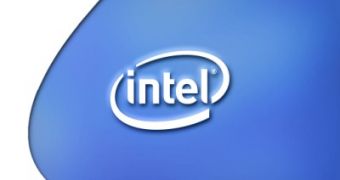Intel's successor to the very popular X38 chipset will be released on the market within a month. The new chipset has been re-scheduled for some time now on grounds of different reasons. Rumor has it that the chip has been kept away because of the motherboard manufacturers that have pressured Intel to give them time in order to get rid of the X38 stock. However, it appears that some problems with the FSB support for the upcoming QX9770 quad-core processor.
Intel released a note to all its technology partners that officially confirmed the mid-March launch date. The chipset's specifications are hardly new, since motherboard top-tier manufacturers, such as Gigabyte Technology and Micro-Star International (MSI), have already detailed upon their products, and implicitly, upon the capabilities of the new chipset.
The X48 chip is an incremental update to the previous X38, and thus, it will only bring incremental advancements over the latter. Moreover, recently leaked benchmarking results reveal that the two chipsets are somewhat similar in terms of performance. The only worth-mentioning addition is the fact that the chipset now fully supports the 1600MHz FSB speed for the upcoming Penryn quad-core processors.
The launch date has been set for March, and this date has not been randomly chosen by Intel. It would coincide with another important event, the launch of AMD's repaired and refurbished Phenom quad-core processors. Before jumping at the fact that a chipset cannot compete with a processor, let me tell you that the X48 will be accompanied by Intel's 45-nanometer Core 2 Extreme QX9770 CPU, which makes all the difference.
The launch will steal all Phenom's alleged glory and will minimize its importance on the market. At the same time, it will allow motherboard manufacturers to release their new X48-based offerings that must have piled up inside their warehouses. Although they have been readied a long time ago, the motherboards were not allowed to ship until the official launch of the chipset they are based on.

 14 DAY TRIAL //
14 DAY TRIAL //